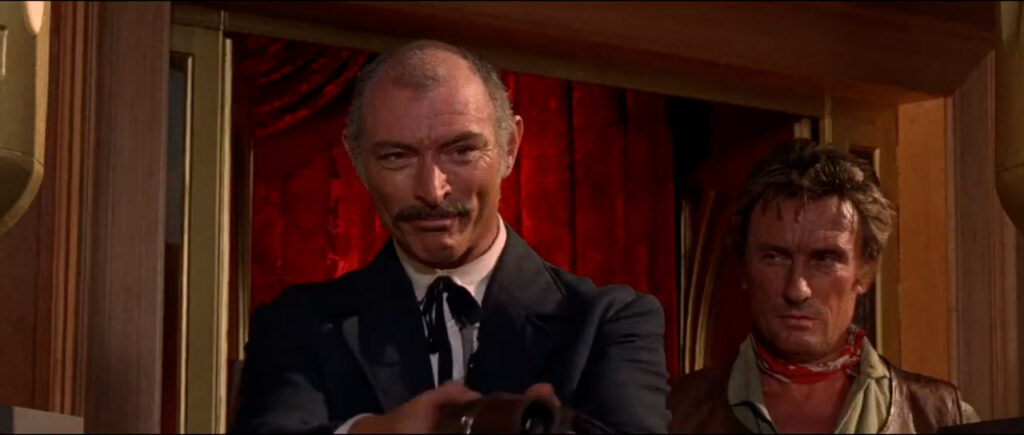In the pantheon of Western cinema, few names evoke as much reverence and admiration as Lee Van Cleef. With his rugged charm, piercing eyes, and commanding presence, Van Cleef left an indelible mark on the genre, earning him the title of a Spaghetti Western legend. His career spanned decades, but it was his iconic roles in Italian Westerns that cemented his status as an enduring figure in cinematic history.
Born on January 9, 1925, in Somerville, New Jersey, Van Cleef’s journey to stardom was a testament to his resilience and talent. After serving in the United States Navy during World War II, he embarked on a career in acting, initially finding himself typecast in villainous roles in Hollywood productions. However, it was his collaboration with Italian filmmaker Sergio Leone that would change the course of his career and elevate him to international fame.
Leone’s “For a Few Dollars More” (1965) marked Van Cleef’s breakthrough in the world of Spaghetti Westerns. Cast alongside Clint Eastwood, he portrayed Colonel Douglas Mortimer, a seasoned bounty hunter with a personal vendetta. Van Cleef’s portrayal of Mortimer captivated audiences with its depth and complexity, setting the stage for his subsequent roles in the genre.
It was his role as Angel Eyes in Leone’s epic masterpiece “The Good, the Bad and the Ugly” (1966) that solidified Van Cleef’s status as a Spaghetti Western icon. As the ruthless and enigmatic antagonist, he mesmerized audiences with his steely gaze and understated intensity. His performance added layers of nuance to the character, elevating him beyond the realm of a mere villain and into the realm of cinematic legend.
Van Cleef’s association with the Spaghetti Western genre continued to flourish with films such as “Death Rides a Horse” (1967) and “The Big Gundown” (1966), further establishing him as a leading figure in the genre. His characters were often morally ambiguous, navigating the lawless landscapes of the Wild West with a sense of stoic determination and grit.
What set Van Cleef apart was his ability to imbue his characters with depth and humanity, transcending the archetypal roles often associated with the genre. Whether portraying a vengeful gunslinger, a conflicted anti-hero, or a seasoned lawman, Van Cleef brought a sense of authenticity and gravitas to every role he inhabited.
Beyond the Spaghetti Western genre, Van Cleef’s career encompassed a diverse range of roles in film and television. He showcased his versatility in projects ranging from crime thrillers to martial arts films, leaving an indelible mark on each endeavor.
Despite his passing in 1989, Van Cleef’s legacy continues to endure, his contributions to the Spaghetti Western genre immortalized in the annals of cinematic history. As audiences revisit the classics of the genre, his iconic performances serve as a reminder of his enduring talent and influence. Lee Van Cleef may have been a legend of the Spaghetti Western era, but his impact on Western cinema as a whole is nothing short of legendary.

